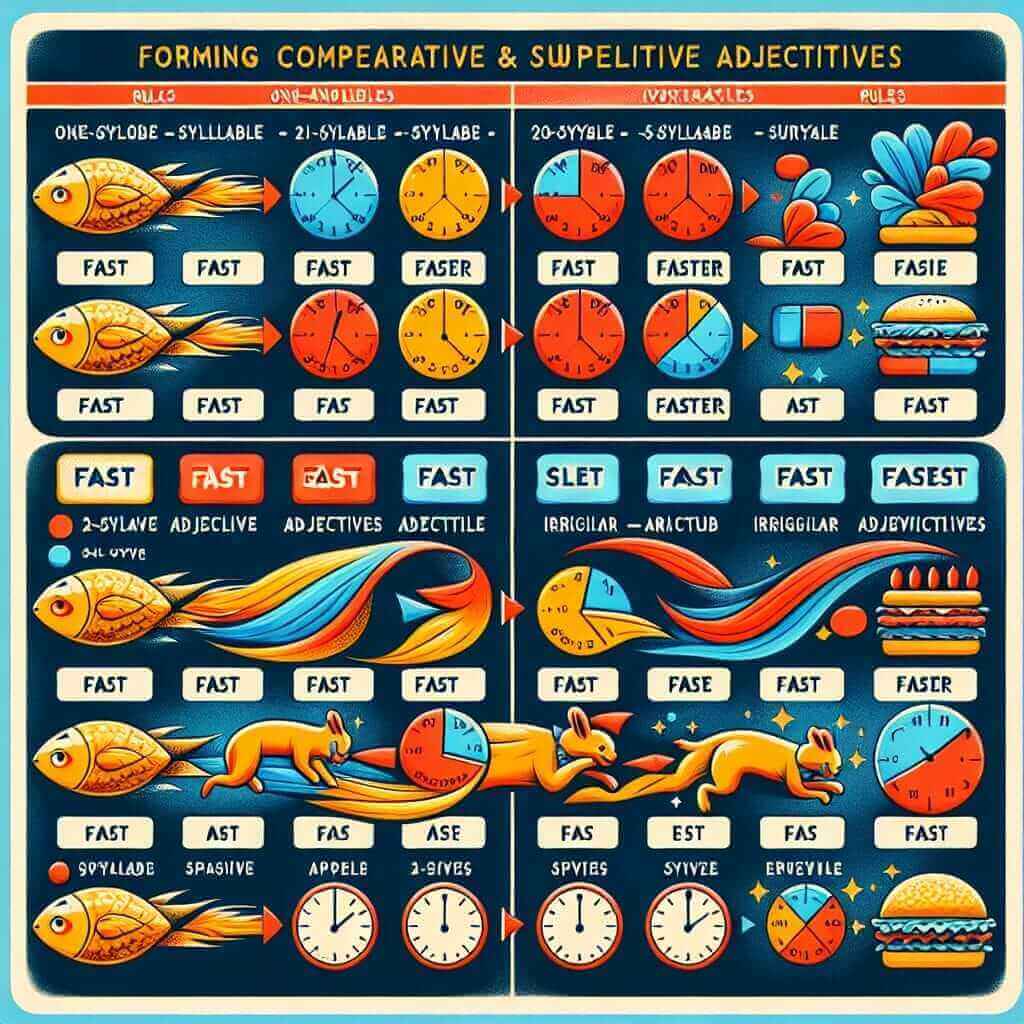Comparative and superlative adjectives are fundamental grammatical tools that allow us to compare and contrast different things. Mastering these forms is crucial for achieving a high band score in the IELTS exam, particularly in the Writing and Speaking sections.
For instance, you might need to compare different solutions to a problem in Writing Task 2 or describe the most interesting place you’ve visited in Speaking Part 2.
Here are some examples of how comparative and superlative adjectives can be used in the IELTS exam:
- Speaking Part 1: “My city is busier than it used to be, especially during rush hour.”
- Writing Task 1: “The graph shows that the number of people using public transport is significantly higher in the city center than in the suburbs.”
- Speaking Part 2: “The most memorable trip I’ve ever taken was to the Amazon rainforest.”
In each of these examples, the use of comparatives and superlatives allows for clearer and more nuanced communication, demonstrating a stronger grasp of English grammar.
Understanding Comparative and Superlative Adjectives
Comparative adjectives are used to compare two things or groups of things, highlighting which one possesses a particular quality to a greater or lesser degree. Superlative adjectives, on the other hand, express the highest or lowest degree of a quality when comparing three or more things.
Knowing when to use each form is essential for accurate and natural-sounding English.
Forming Comparative and Superlative Adjectives
One-syllable adjectives:
| Form | Rule | Example |
|---|---|---|
| Comparative | Add -er to the end of the adjective | tall – taller |
| Superlative | Add -est to the end of the adjective | tall – tallest |
Example in a sentence:
- “Mount Everest is higher than K2.” (comparative)
- “Mount Everest is the highest mountain in the world.” (superlative)
Two-syllable adjectives ending in -y:
| Form | Rule | Example |
|---|---|---|
| Comparative | Change -y to -i and add -er | happy – happier |
| Superlative | Change -y to -i and add -est | happy – happiest |
Example in a sentence:
- “She’s happier now than she was before.” (comparative)
| “This is the happiest day of my life!” (superlative)
Two or more syllable adjectives:
| Form | Rule | Example |
|---|---|---|
| Comparative | Use more before the adjective | interesting – more interesting |
| Superlative | Use most before the adjective | interesting – most interesting |
Example in a sentence:
- “This book is more informative than the last one I read.” (comparative)
- “This is the most delicious cake I’ve ever tasted!” (superlative)
Irregular adjectives:
Some adjectives have irregular comparative and superlative forms. These need to be memorized.
| Adjective | Comparative | Superlative |
|---|---|---|
| good | better | best |
| bad | worse | worst |
| far | farther/further | farthest/furthest |
| little | less | least |
Example in a sentence:
- “Your English is better than mine.” (comparative)
- “He is the best student in the class.” (superlative)

Utilizing Comparatives and Superlatives for a Higher Band Score
To impress the IELTS examiner and achieve a higher band score, consider these strategies:
- Variety is Key: Instead of repeatedly using “more” or “-er” forms, incorporate a range of comparative and superlative structures. For example:
- “slightly higher”
- “significantly more expensive”
- “by far the most important”
- Context is Crucial: Ensure your comparisons are logical and relevant to the topic at hand. Avoid making comparisons that are obvious or irrelevant to the task.
- Quantitative Data: When presenting data in Writing Task 1, utilize comparatives and superlatives to highlight trends, differences, and key features. This demonstrates your ability to analyze and interpret information effectively.
Common Errors to Avoid
Be mindful of these common mistakes:
- Double Comparatives/Superlatives: Avoid using “more” or “most” with adjectives that already have “-er” or “-est” endings.
- Incorrect: “This is the most easiest way to solve the problem.”
- Correct: “This is the easiest way to solve the problem.”
- Incorrect Forms: Memorize irregular comparatives and superlatives to avoid errors.
- Incorrect: “My new car is gooder than my old one.”
- Correct: “My new car is better than my old one.”
Conclusion
Mastering the use of comparative and superlative adjectives is essential for achieving success in the IELTS exam. By understanding the rules, utilizing a variety of structures, and avoiding common pitfalls, you can effectively demonstrate your grammatical range and accuracy. This, in turn, will contribute to a higher band score in your writing and speaking. Remember to practice consistently and pay close attention to the nuances of these grammatical forms to boost your overall performance.